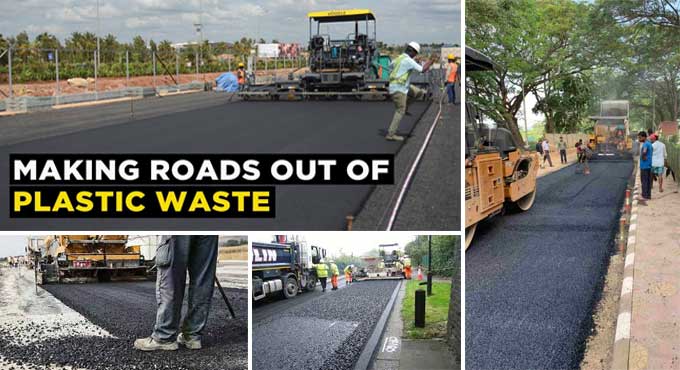
Plastic Roads in Construction: Impact on the Environment
What do you mean by Plastic Roads?
Plastic roads are becoming more popular as a cost-effective and environmentally friendly replacement for conventional asphalt and concrete roads. With this innovative technique, roadways are made from recycled plastic and are stronger and survive longer than conventional ones. The technique has undergone successful trials in several nations across the world.
A plastic road is created from reclaimed plastics, such as plastic water bottles, bags, containers, and other items made out of non-biodegradable plastics, such as plastic water bottles and plastic bags. Recycling plastics is combined with asphalt and bitumen to form a road by heating and melting them together. Roads constructed this way have several advantages over traditional roads.
What are the benefits of Plastic Roads?
Compared to traditional asphalt roads, plastic roads have many advantages. There are several benefits of plastic roads, including their durability, resilience, and flexibility. There are a number of major advantages to using plastic roads.
More Durability
The strength of plastic roads is three times that of asphalt. Their increased durability makes them more resistant to potholes and harsher weather.
Lesser Carbon Footprint
A frequently used measure for assessing how human activities affect the environment is the idea of a carbon footprint. The quantity of carbon dioxide and other greenhouse gases produced into the atmosphere as a result of production, transportation, and the burning of fossil fuels is referred to as one's carbon footprint. The Earth's temperature has risen over the past few decades as a result of the gradually rising global carbon footprint.
Less cost
Cost savings associated with plastic roads are primarily associated with materials used in their construction. The construction of plastic roads requires far fewer materials and energy than asphalt roads. Roads made from plastic are up to 50% cheaper and require significantly less maintenance than traditional asphalt roads. It is also proven that plastic roads last longer than asphalt roads, which reduces future maintenance expenses significantly.
Lesser pollution
One of the biggest dangers to our ecosystem is pollution. The number of pollutants discharged into the air is rising at an alarming rate as both the population and the number of automobiles are expanding.
The issue is made worse by the fact that many of the present roadways are constructed with substances like asphalt, concrete, and even sand that may be more environmentally friendly. In order to fight this, several governments and commercial enterprises have started using plastic roads as environmentally benign modes of transportation.
Plastic roads are also effective at reducing road noise. Due to their smooth surface, plastic roads reduce friction between tires and road surfaces. In addition to reducing noise levels, plastic roads are more enjoyable to travel on.
Better Flexibility
Due to the special design of plastic roads, they can bend and adjust to changes in the ground. The use of plastic enables the roads to stretch and move with the changing terrain, lowering the possibility of asphalt roads collapsing and cracking due to ground movement. Because of its flexibility, the road may also be built in smaller, less-wasted shapes, which results in a road surface that uses less material and is, thus, more ecologically friendly.
Can be a source of income
Additionally, using plastic for roads helps local communities prosper economically and create jobs. Local governments may utilise the money saved by using plastic roads, which are substantially less expensive to build, to hire more people and make investments in the local economy. The development of plastic roads may create job opportunities and support economic growth, making it a wonderful source of cash for low-income areas.
More aesthetically pleasing
In addition to being an aesthetically pleasing addition to any landscape, plastic roads can also be used for construction purposes. Adding these kinds of structures to a local area can enhance its beauty while at the same time providing a safe, efficient, and effective way for people, goods, and services to be transported there.
What are some of the disadvantages of Plastic Roads?
Plastic roads have certain disadvantages, they are
- In order to affect maintenance on these modular roads, the flow of power, water, and internet that have been installed on these roads will be interrupted every time these roads are maintained.
- It is essential to use compatible plastics in the construction of pure plastic roads, since different types of plastic may phase separate when melted and cause structural weaknesses, which can lead to premature failure in the road.
- There is a possibility that plastics in the road can break down into microplastics, which are then able to find their way into soils and rivers. It is also possible for these microplastics to absorb other pollutants as well.
- Plastic garbage is recycled to make plastic roadways, which lessens the quantity of plastic waste dumped in landfills. However, compared to conventional asphalt roads, making plastic roads does need more energy. Over time, toxic chemicals like phthalates may seep into the environment through plastic highways. Phthalates interfere with human and animal development and reproduction.
To get more details, watch the following video tutorial.
Video Source: Indiatimes


